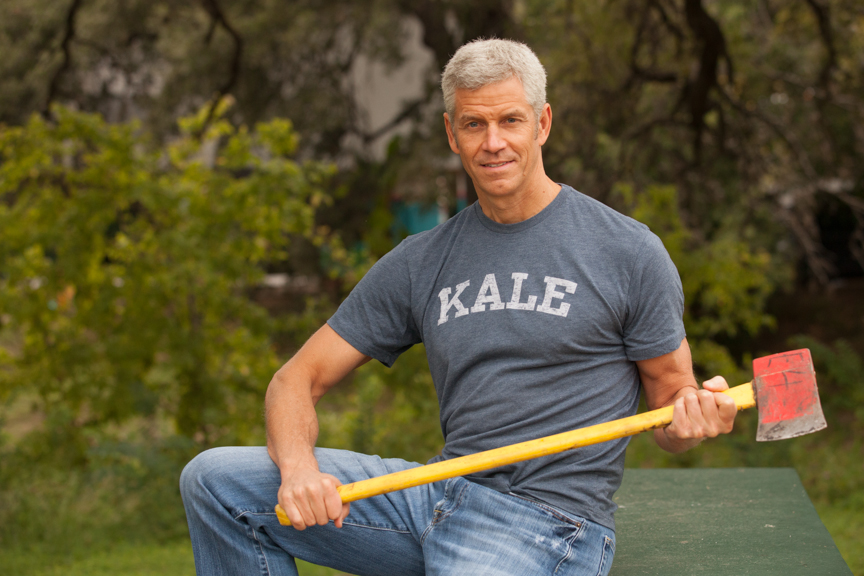
Rip Esselstyn, founder of the Engine 2 Diet
Perhaps one of the most dangerous trends in Nonhuman Animal rights activism is the relentlessness of bogus health claims made in the name of veganism. Plant-based eating1 is often marketed as the secret solution to every health crisis under the sun. Want to reverse heart disease? Go vegan. Want to fight depression? Go vegan. Want better skin? Go vegan. Want a better sex life? Go vegan. And the list goes on. Encouraging healthful and ethical eating is not in of itself a bad thing (so long as it does not include body-shaming or concern-trolling), but encouraging others to expect miracles is disingenuous.
In many cases, veganism becomes a mask for capitalizing on the vulnerable. Blatant marketing schemes adulterate the nonviolent message of veganism, repackaging it into profitable fad diets in order to sell programs, books, videos, and membership access.
Unsubstantiated or inflated claims inevitably undermine the vegan movement’s legitimacy. They could possibly endanger individuals who ascribe to them as well. Vegans committed to nonviolence and justice have an ethical obligation to take issue with those who misguide and exploit the sick or dupe the worried with fear-mongering.
Take, for instance, VegNews, which launched a “Veganism Saved My Life” column in 2013. It features seriously ill people who are supposedly pulled from the edge of the grave by the power of fruits and vegetables. In the first installment, a woman with Stage IV Breast Cancer is approached by a Seventh Day Evangelist who encourages her to try plant-based eating. After forgoing her medications and going vegan, the patient reports:
I felt results within the first few weeks of changing my eating. I felt lighter, and even though I was still very ill, I began to have more energy. My immune system grew stronger and stronger—it’s why I am here today.
Extraordinary claims might be expected from vegetarian Seventh Day Adventists, as faith-based claimsmaking is customary in the religious community, but when a respected authority in the vegan community such as VegNews lends platform to these questionable claims under the guise of science, it then becomes necessary to consider how the vegan movement could be engaging human exploitation and endangerment.
Can veganism cure cancer? Diabetes? Heart disease? Perhaps so in some cases. Nevertheless, activists should keep in mind that there are a litany of other variables impacting life quality and longevity including genetics, environment, socioeconomic status, race and ethnicity, sex and gender, exercise, and stress levels. Of course consuming processed foods, “meats,” dairy, and birds’ eggs is not helping much, but it isn’t entirely accurate to claim that plant-based eating is the mysterious key to recovery and long life.
Many studies have been conducted that do suggest that plant-based consumption improves health and lifespan, but to exalt the practice as a magical cure-all is potentially very dangerous. Anyone who is considering shifting to plant-based eating with high expectations of Oprah-worthy medical turnarounds is advised to do their research. Buyer beware: look beyond the shiny claims endorsed by celebrity doctors, manufacturers, and authors. Actually take a look at the original medical research. This information is available to anyone (Google Scholar is a great place to start). Many mainstream medical journals ensure that the main findings of their published research are free from jargon and easily located in abstracts.
Plant-based eating has potential to improve quality of life and reduce the risk of many chronic diseases, but, no, veganism can’t exactly “save your life.” What it can do, however, is save the lives of Nonhuman Animals. Going vegan means refusing to support the exploitation and killing of others. Indeed, while I have argued thus far that a health-scare approach to vegan outreach is risky for public well-being, it also disempowers the vegan movement. Activists can’t reasonably hope to create meaningful social change for other animals by enticing new members with fear, quackery, and anthropocentrism. Furthermore, only a few privileged humans have access to pricier plant-based eating of the “life-saving” kind.
An honest approach to veganism will acknowledge that Nonhuman Animals must be included in the message as a matter of coherency. An honest approach will also acknowledge that health claims are limited both in efficacy and in accessibility.
Note: I use the phrase “plant-based eating” in lieu of a veganism, as I am careful not to conflate a vegan diet with veganism as a political position.
A version of this essay first appeared on The Academic Activist Vegan on January 7, 2013.
You can read more about the problems of health-centic vegan outreach in A Rational Approach to Animal Rights: Extensions in Abolitionist Theory (Palgrave 2016). Receive research updates straight to your inbox by subscribing to my newsletter.
